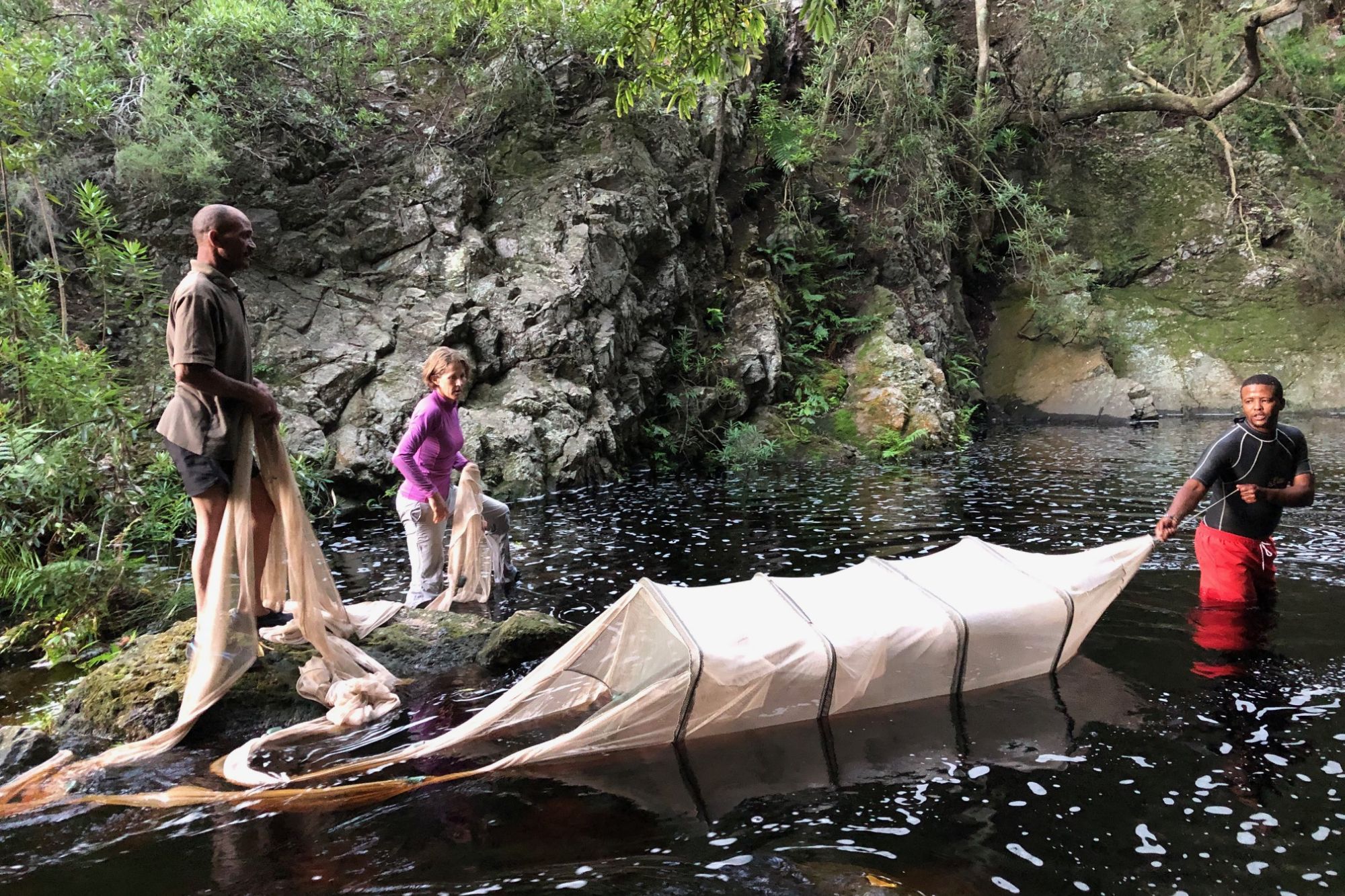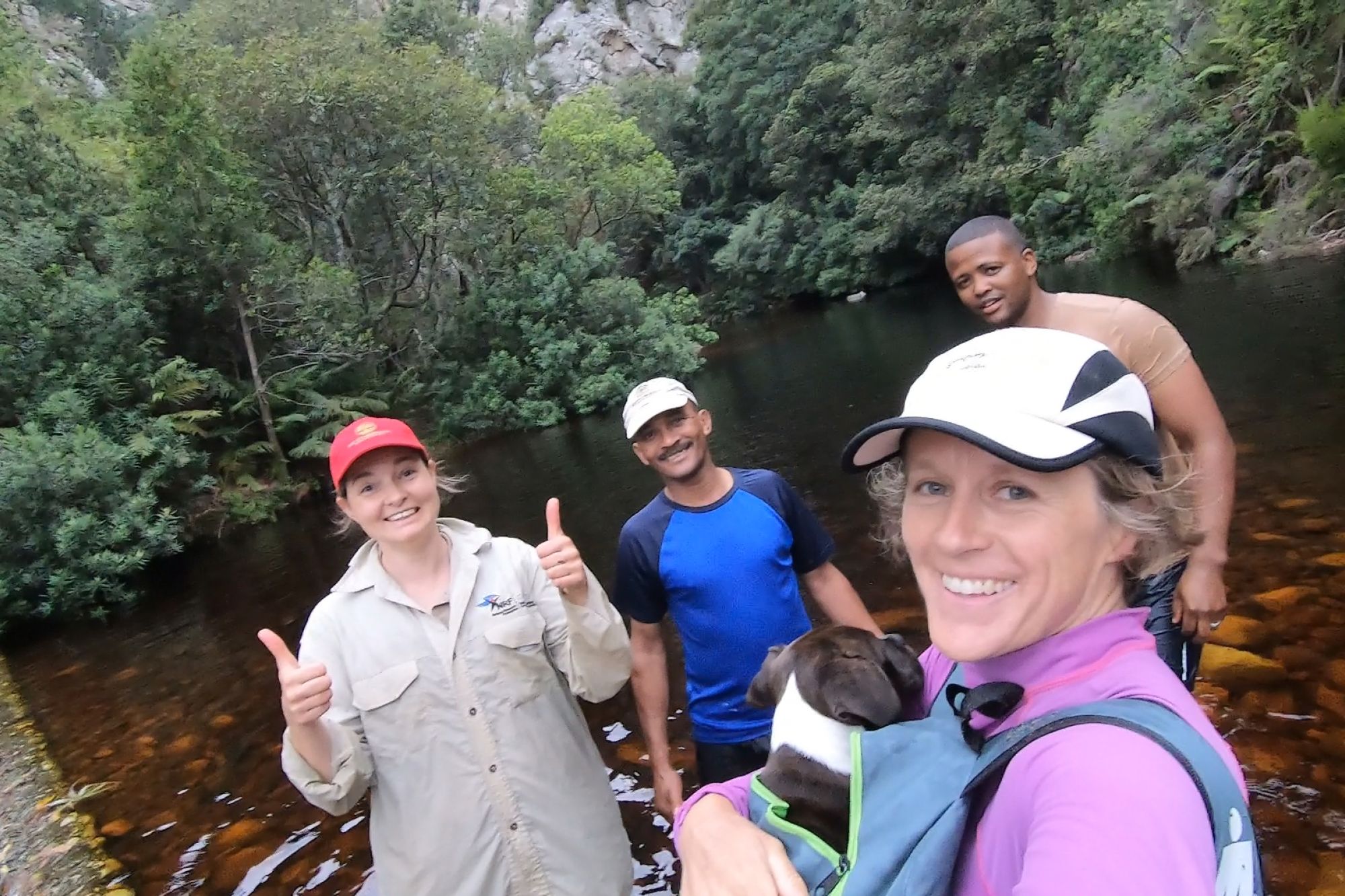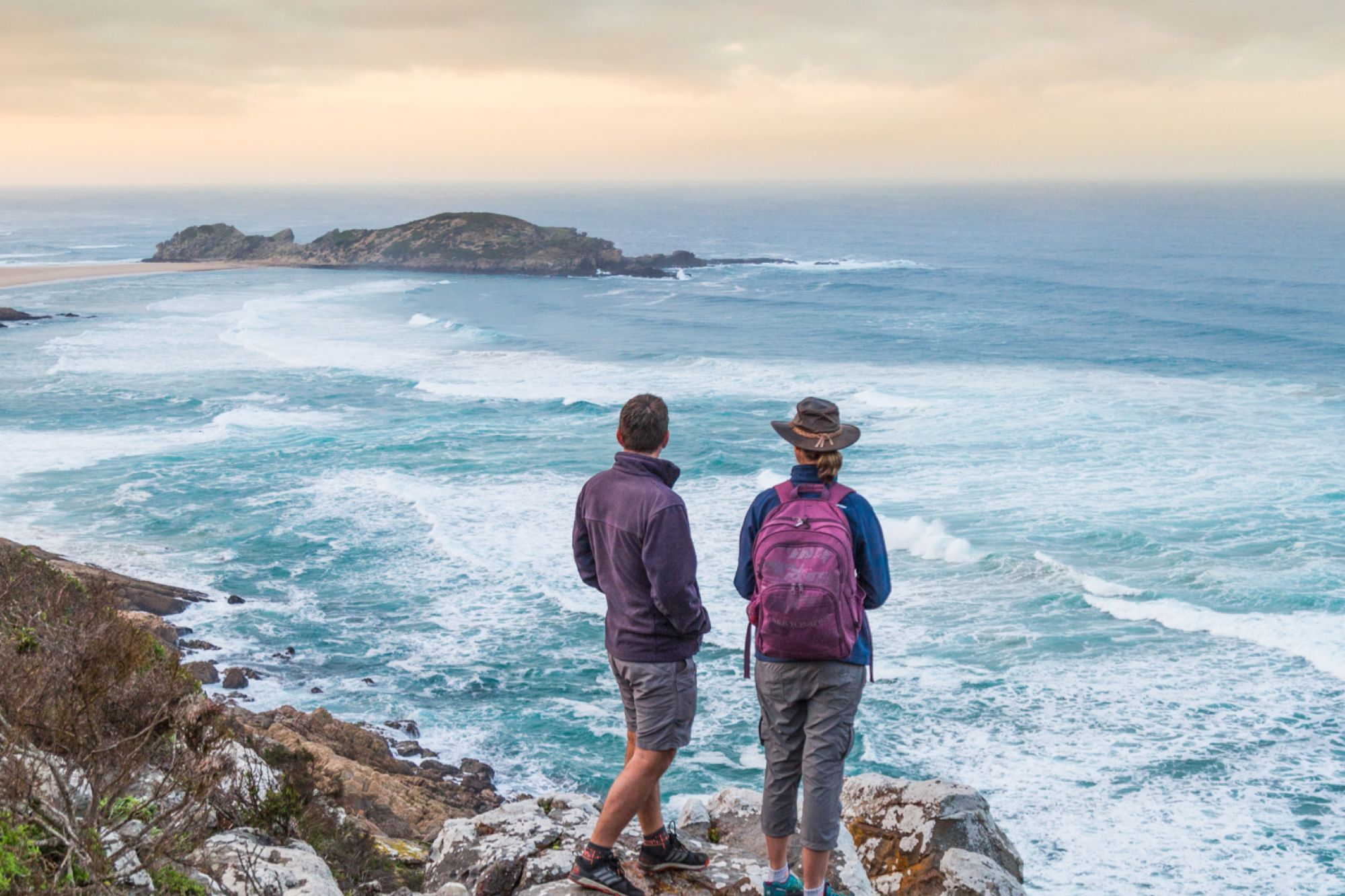
Sights unseen: finding the hidden secrets of the Grootvadersbos rivers
Thanks to an ongoing project funded by the Table Mountain Fund, CapeNature’s aquatic biologists Dr Martine Jordaan and Ms Jeanne Gouws are collaborating with the Grootvadersbos Conservancy to unearth the fishy secrets from the rivers of the Tradouw and Duiwendhoks catchments.

Grootvadersbos Conservancy borders the Grootvadersbos Nature reserve and the Langeberg Mountain Catchment Area (MCA) and is home to a number of mountain tributaries. Due to the mountainous terrain, these streams have, until very recently, been unexplored in terms of aquatic biodiversity.
Joint field surveys are ongoing and to date a number of new distribution localities for native fish have been recorded. The native fish compliment of the area comprise the Breede river redfin, the Cape kurper and the Cape galaxias, all three of which are endemic to the Cape Fold Ecoregion. From a biodiversity perspective these records are very important as the majority of the freshwater fish species of the Western Cape Province is highly threatened and at risk of extinction in the future. The main threats to freshwater fish are loss of habitat due to poor land use practices, pollution, water abstraction and predatory invasive fish species. Many of rivers associated with the conservancy originate on either Grootvadersbos Nature Reserve or the Mountain catchment area and through good land use practices the conservancy is aiding in the conservation of these very species fish in off-reserve areas.

Scientific outcomes of the project include the collection of DNA samples and voucher specimens for researchers working at the South African Institute for Aquatic Biodiversity and collecting data for use in Red List Assessments. The project also has a strong focus on human capital development and in-field training in fish survey techniques is provided for the conservancy staff. While baseline sampling is still ongoing, the vision is to set up a collaborative long term monitoring program between staff from CapeNature and the Conservancy.

Related News
How can I assist you today?
How can I assist you today?



